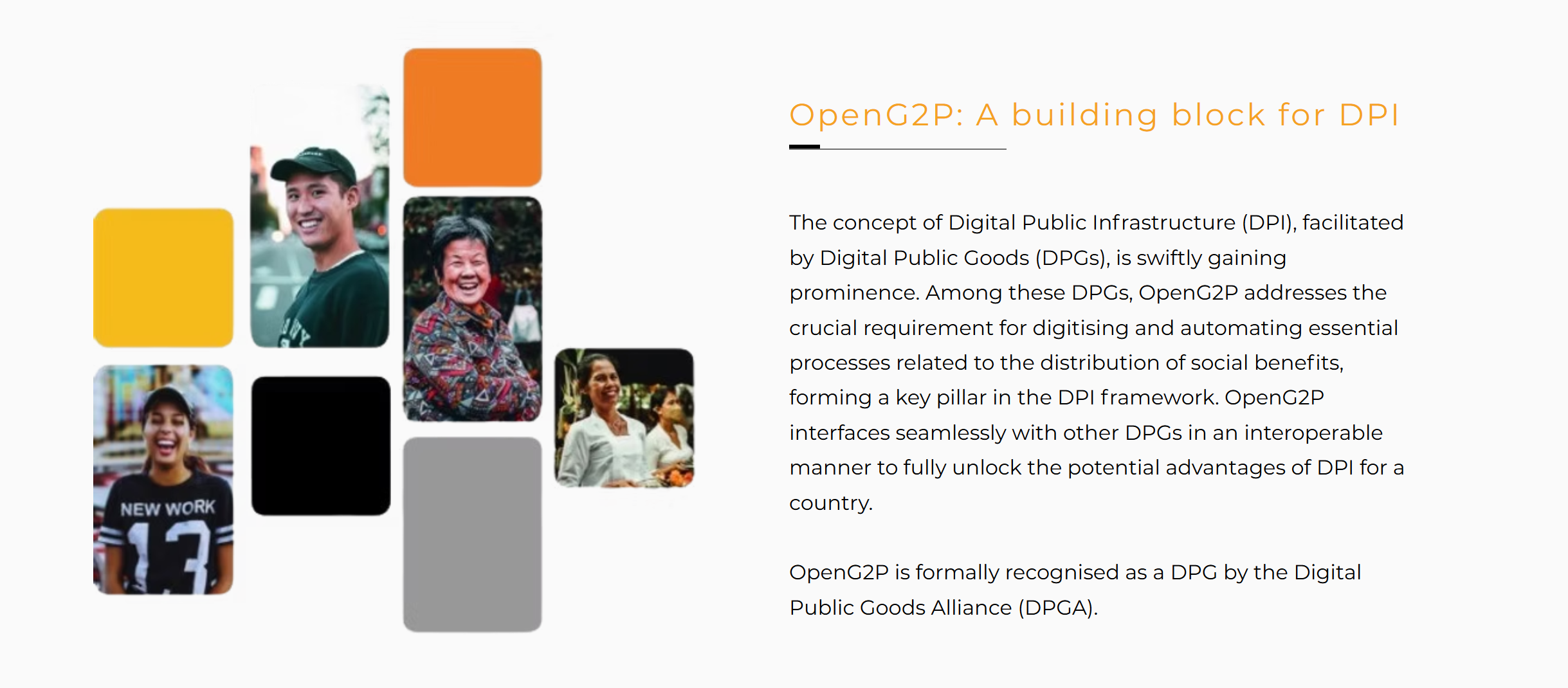Delivering social benefits from government to person
Co-Develop, Gates Foundation, Pratiksha Trust

Many governments and humanitarian organisations struggle with fragmented, inefficient, and proprietary systems that hinder the timely and transparent delivery of social benefits to those who need them most. OpenG2P addresses this challenge by enabling governments and humanitarian organisations to deliver critical social benefits, offering people-centric and open-source solutions and ensuring that support reaches vulnerable populations more efficiently.
OpenG2P provides open-source building blocks that enable governments to digitise and automate the entire social benefit delivery process, from registration to benefit distribution and monitoring. It supports secure, inclusive registries, efficient programme management modules, and digital cash transfers, serving as a crucial component of Digital Public Infrastructure. Recognised as a Digital Public Good by the DPGA, OpenG2P is designed to promote an open and inclusive approach to benefit transfers while upholding privacy, advancing gender equality, and fostering financial inclusion.
To bridge the digital divide, OpenG2P provides open-source, adaptable tools that help governments digitise and streamline the delivery of social benefits. By supporting secure, inclusive registries, robust programme management, and digital cash transfers, OpenG2P ensures that even marginalised and hard-to-reach communities can access essential services. As a recognised Digital Public Good, it promotes an open and inclusive approach to benefit transfers that safeguards privacy, advances gender equality, and fosters financial inclusion, empowering people everywhere to participate in and benefit from the digital economy.
Following the successful pilot phase, OpenG2P is expanding its support to scale the Emergency Relief Programme and Farmers Registry Programme to potentially cover up to 15 million people across Ethiopia. The Returnee Programme continues to grow with consistent weekly registrations, aiming to enhance on-arrival services for deported citizens. The platform plans to further strengthen coordination with regional centers and service providers to ensure timely and efficient assistance delivery across all use cases.